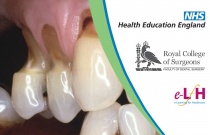Non Invasive Respiratory Support
Peter MacNaughton
0.50 Hours
This session is an outline of continuous positive airway pressure (CPAP) and bi-level ventilation and their role in treatment of acute respiratory failure.
Multi-modal Analgesia
Mick Serpell
0.50 Hours
This session describes the optimization of pain control through the rational combination of drug and non-drug modalities.
Eating Disorders In Young People
Dasha Nicholls Consultant Child and Adolescent Psyschiatrist
0.50 Hours
This session gives an overview of the nature, aetiology and risk factors linked to eating disorders. Also covered are the diagnostic elements that allow us to distinguish between eating disorders and other conditions affecting the eating behaviour of young people. This session was reviewed by Hilda Mulrooney, Louise Lam and Lisa....
Elbow Pain
Satpal Shekhawat
0.50 Hours
This session provides essential information on the common causes of pain in the elbow, their associated diagnoses and recommended treatment, as well as an overview of elbow anatomy.
Healthy Eating for Toddlers: 1- 4 years
Catherine Elwig Clinical Lead Paediatric Dietetics, Imperial College London
0.50 Hours
This session describes ways of identifying what constitutes healthy eating to satisfy unique toddler requirements. In addition, the session also examines toddler behaviours such as fussy eating and food neophobia and the impact these behaviours can have on nutritional intake. This session was reviewed by Elaine Tabony and update....
Human Factors and Patient Safety in Primary Care
Jane Carthey Patient Safety and Human Factors Specialist and Christine Johnson General Practitione
0.50 Hours
This session provides an overview of the field of human factors, including the human factors challenges in primary care. It also provides explanation of why improving patient safety requires us to consider human factors when designing healthcare systems. This session was reviewed by Louise Newson and last updated in November 201....
Management of Erosion
Alex Milosevic
This session describes how to identify dental erosion and the different treatment options available.
Investigation Management and Treatment of Mitral Stenosis
Ceri Davies
0.50 Hours
This session provides an overview of the investigation of mitral stenosis and its subsequent management.
Jaundice in the Acute Medicine Setting
Nadia Khan
0.50 Hours
This session covers the presentation, investigation and management of jaundice in the acute setting.
Hypothermia in the Elderly: Causes and Multifactorial Nature
Claire Dow
0.50 Hours
This session looks at the definition and causes of non exposure hypothermia in older people, how to treat it and how to prevent it.
How to Take a Dizzy History
Tom Heaps
0.25 Hours
This session will cover how to take a history from a patient presenting with dizziness.
How to Take a Headache History
Edward Dunn
This session lists the key points to cover when taking a headache history. These will help you distinguish between headaches that need further investigation and those that do not.
Influence of Transition Points and Crises on Decision-Making in Symptom Management - Palliative Care
Dee Traue
This session discusses how to deal with transition points and crises, both in terms of initial management options and how these options can be explained and discussed with patients approaching the end of life and their relatives and carers. The ways in which these transition points and crises influence decision-making in symptom....
Management of Depression in Palliative Care
Annabel Price and Max Henderson
This session provides a framework for an integrated management of depression.
Drug-induced Hoarseness and Stridor
Salman Haider
0.25 Hours
This session explores the causes of drug-induced hoarseness and stridor.
Investigation and Management of Cough
Salman Haider
0.50 Hours
This session examines the management of cough.
Holistic Approach
Marion Lynch
0.50 Hours
This session introduces the Holistic Approach domain of the RCGP curriculum. It explores patients and GP perceptions of holism and how these influence the presentation of problems, communication, diagnoses and the sharing of management planning. This session was reviewed by Suchita Shah and last updated in October 2014.
Managing Your Emotions
Roger Neighbour
This session explains the importance of doctors managing their own emotions in the consultation, and suggests some ways that this can be done.
Clinical Supervision and Professional Development
Industry Specialist
4.00 Hours
Supervision is necessary to improve client care, develop the professionalism of clinical personnel, and impart and maintain ethical standards in the field. This CE course focuses on teaching, coaching, consulting, and mentoring functions of clinical supervisors.
Drugs and Dysphagia Part 2
Drugs and Dysphagia Part 2
0.25 Hours
The Drugs and Dysphagia video series is divided into three parts. Parts 1 and 2 discuss the medications affecting the central nervous system and dysphagia. Part 1 provided a review of the central and peripheral nervous systems. This 2 hr video is Part 2 which focuses on specific classes of medications and their effect on dysphag....
Normal Cardiac CT
Carl Roobottom and Nathan Manghat
0.75 Hours
This session covers cardiac computed tomography (CT) principles, indications and the normal cardiac anatomy.
Coarctation of the Aorta
Nick Ring
0.50 Hours
Coarctation of the aorta is a congenital abnormality, which may occur on its own or be associated with other congenital abnormalities, most commonly in the heart. This session will give an overview of the subject including the salient findings that may be encountered on a variety of imaging modalities.
Generic Signs on Plain Radiographs - Part I
Stephen Ellis
0.50 Hours
This session looks at generic signs (such as silhouettes) on chest x-ray (CXR) and computed tomography (CT) scans and how to interpret them. Also covered are the air bronchogram, air crescent, and gloved finger.
Hypersensitivity Pneumonitis
Russell Jones
0.50 Hours
This session reviews the aetiology, pathology and radiology of hypersensitivity pneumonitis (HP), also known as extrinsic allergic alveolitis.
























